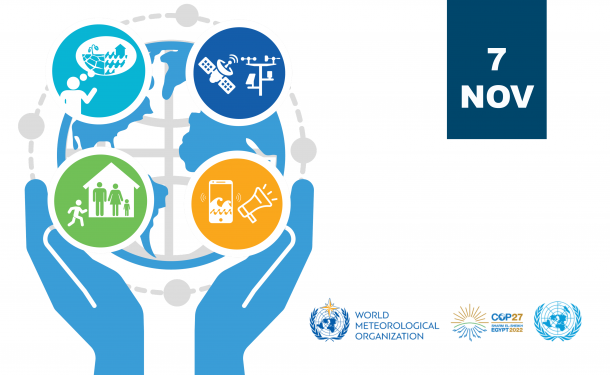Telecom regulatory compliance for emergency services

Key principles
Telecom operators are required to comply with complex and evolving regulations to enable enhanced emergency communications, further emphasizing the importance of enhancing location capabilities to remain compliant, while ensuring respect for data privacy.
Universality
moreIn many countries, Universal Service Obligation (USO) mandates telecom operators to contribute to a fund that supports the provision of universal access to telecommunications services and to provide universal access to emergency services, regardless of the type of service or technology they provide.
Accessibility
moreThrough their networks, telecom operators must provide access to emergency services, such as police, fire, and ambulance services, and ensure that emergency numbers are accessible to all users, including people with disabilities, and those who are deaf or hard of hearing.
Quality of Service (QoS)
moreMobile operators must meet certain QoS standards to ensure that emergency services can be accessed without interruption or delay, and they can be required to comply with emergency service providers and work closely with them to ensure that emergency communications are effective and efficient.
Resilience & capacity
moreTelecom operators must ensure that their networks are resilient and can continue to provide access to emergency services during network outages, natural disasters, or other disruptions, and in many countries, they are also required to maintain network capacity in times of emergency and have backup power systems to ensure that emergency services can still be accessed.
Data privacy
moreTelecom operators must ensure that personal data is handled in accordance with applicable laws and regulations. This includes regulations such as the General Data Protection Regulation (GDPR) in the European Union and the Personal Information Protection and Electronic Documents Act (PIPEDA) in Canada.





Public alerting & Emergency calls
At Intersec, we help mobile operators familiarize themselves with the applicable regulations in their area because regulations can vary depending on the country or region.
Emergency alerts
Emergency alerts
Alerts to mobile devices: Mobile operators are required to support public warning systems (PWS) that allow governments to send out urgent messages to the public during emergencies, such as natural disasters or terrorist attacks. They must provide reliable and effective emergency communications during emergencies.
Geotargeted alerts: The alerts must be geotargeted, meaning that they are sent only to individuals in the affected area, including visitors and tourists.
Reliability: They must also establish procedures for maintaining public warning systems by running regular tests to identify and address any technical issues that may prevent messages from being delivered.
Accessibility: Public warning messages must be clear, understandable and must contain information on the nature of the emergency or disaster, the location of the affected area, and any necessary instructions or advice. Messages must also be available in accessible formats for people with disabilities.
Wireless emergency alerts: Telecom operators must support WEA and ensure that they are delivered to mobile devices in a timely and effective manner.

Regulations
EU Regulation: Since June 2022, in the European Union, Article 110 of the European Electronic Communications Code (EECC) mandates telecom operators to cooperate with national authorities to ensure that public warning messages can be transmitted to citizens in a timely and effective manner on their mobile phones if they are located in an area where danger is developing, whether they are residents or visitors in that area. This involves the use of various technologies, such as cell broadcast and location-based SMS, as well as the integration of traditional channels such as television, websites, social media, radio… To learn more: EENA website
Globally, the Early Warnings For All Initiative (EW4All), formally launched by the UN Secretary-General in November 2022 at the COP27 meeting in Sharm El-Sheikh, calls for the whole world to be covered by an early warning system by the end of 2027.
EMERGENCY CALLS
Emergency calls
Routing & location: Telecom operators must ensure that emergency calls are routed to the appropriate Public Safety Answering Point (PSAP). In addition, the location of the caller must be provided to the emergency service center when an emergency call is made, which can be done through location-based services or by the caller providing their location information.
Caller identification: Telecom operators must provide accurate caller identification information for emergency calls. This includes the caller's phone number and any other relevant information that may help emergency services respond quickly.
Quality of service: Telecom operators must also ensure that emergency calls receive priority over other types of calls, and that the call quality is high enough to enable effective communication between the caller and the emergency service center.
Reporting: Telecom operators must report to regulatory authorities on their compliance with emergency service requirements, including the number and type of emergency calls received, the location accuracy of emergency calls, and any network outages or disruptions that affect emergency service availability.

Regulations
EU regulation: Under Article 109, paragraph 6 of the European Electronic Communications Code (EECC), Member States are required to ensure that caller location information is made available to the most appropriate PSAP without delay after an emergency communication is set up. This includes both network-based and handset-derived caller location information. To further support this requirement, the European Commission adopted Delegated Regulation which requires Member States to define national criteria for caller location accuracy and reliability. This includes recommendations from EENA that AML should achieve a precision of within 50 meters for at least 80% of calls. To learn more: EENA article
US regulation: In the United States, the Federal Communications Commission (FCC) requires that all telecom operators provide E911 service, which allows emergency responders to locate a caller's position when they call 911. Telecom operators are required to provide accurate and reliable location information, which can be determined through various methods such as GPS or triangulation of cell towers.
Related articles

Emergency response in the digital age: why you have to go all in

Intersec embraces the UN 'Early Warnings for All' Initiative and recalls the importance of an integrated approach
Get started with Intersec

We help telcos and public authorities embrace the digital revolution as we believe data transforms the way our customers work.
